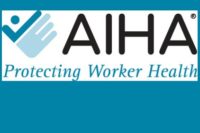 A new 3.2 million Euro program that aims to build capacity of local businesses in developing countries on corporate sustainability management and reporting is being launched by the UN Global Compact, the Global Reporting Initiative (GRI) and the Swiss State Secretariat for Economic Affairs (SECO), ahead of the United Nations Conference on Sustainable Development – Rio+20.
A new 3.2 million Euro program that aims to build capacity of local businesses in developing countries on corporate sustainability management and reporting is being launched by the UN Global Compact, the Global Reporting Initiative (GRI) and the Swiss State Secretariat for Economic Affairs (SECO), ahead of the United Nations Conference on Sustainable Development – Rio+20.
Companies operating in developing countries are facing increased demand from international clients to integrate sustainability aspects into their processes. In this context, world leaders at Rio+20 will discuss the importance of sustainability reporting to drive sustainable business conduct, which is also highlighted in the draft of the Rio+20 Outcome Document.
The joint program to be launched in Rio this week will enable companies in developing countries to improve their management and reporting of key economic, environmental and social issues such as greenhouse gas emissions, energy efficiency, human rights, women empowerment, and anticorruption.
“We support this partnership as an initiative which pursues a comprehensive voluntary reporting approach, equally covering environmental and social issues. In working together with GRI and the Global Compact to make sustainability reporting standard practice, we are bringing the worlds of enterprise and international development cooperation together, thereby assisting companies in developing countries to integrate into global value chains,” said Hans-Peter Egler, Head Trade Promotion, Swiss State Secretariat for Economic Affairs (SECO).
The Global Reporting Initiative (GRI) produces a comprehensive sustainability reporting framework that is widely used around the world. The UN Global Compact (UNGC) is an initiative for businesses that are committed to aligning their operations and strategies with ten universally accepted principles in the areas of human rights, labor, environment and anti-corruption. As part of their collaboration, the Global Compact and GRI are working together to provide companies with a comprehensive framework for corporate sustainability performance and disclosure, based on the Global Compact Principles and the GRI Guidelines.
Georg Kell, Executive Director of the Global Compact, said: “Corporate sustainability management and reporting can help companies identify areas for improvement and better manage their risks and opportunities. Ultimately the program aims to strengthen businesses’ sustainability management practices in these markets to improve the competitiveness of local businesses facilitate access to international markets and capital.”
Ernst Ligteringen, Chief Executive of the Global Reporting Initiative (GRI), said: “Transparency is a key part of sustainable business operation, and can help companies in developing countries get access to new markets, manage their risks and opportunities, and improve performance.”
“The number of companies in developing countries that report their sustainability performance is growing, but the situation is the same globally – growth is not quick enough. For a sustainable future and a Green Economy, all businesses need to act responsibly and transparently. With this new program, we hope to encourage and enable more companies in developing countries to operate more sustainably and transparently,” added Ligteringen.
The Global Compact, GRI and SECO will launch the new project on 16 June at the Rio+20 Conference, highlighting the importance of sustainability management and reporting for improving companies’ competitiveness in developing countries. The Rio+20 Conference provides an unprecedented opportunity for the global community to rally behind the principle that corporate transparency on sustainability performance and strategy is a keystone of sustainable development.





